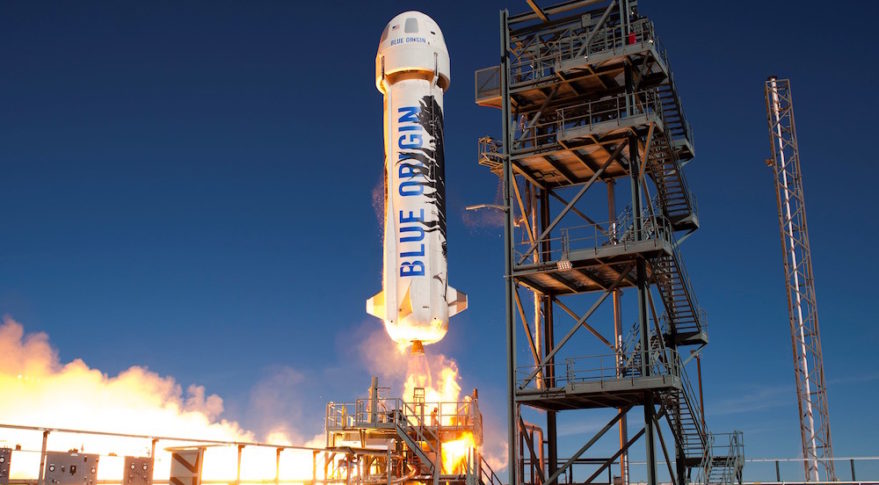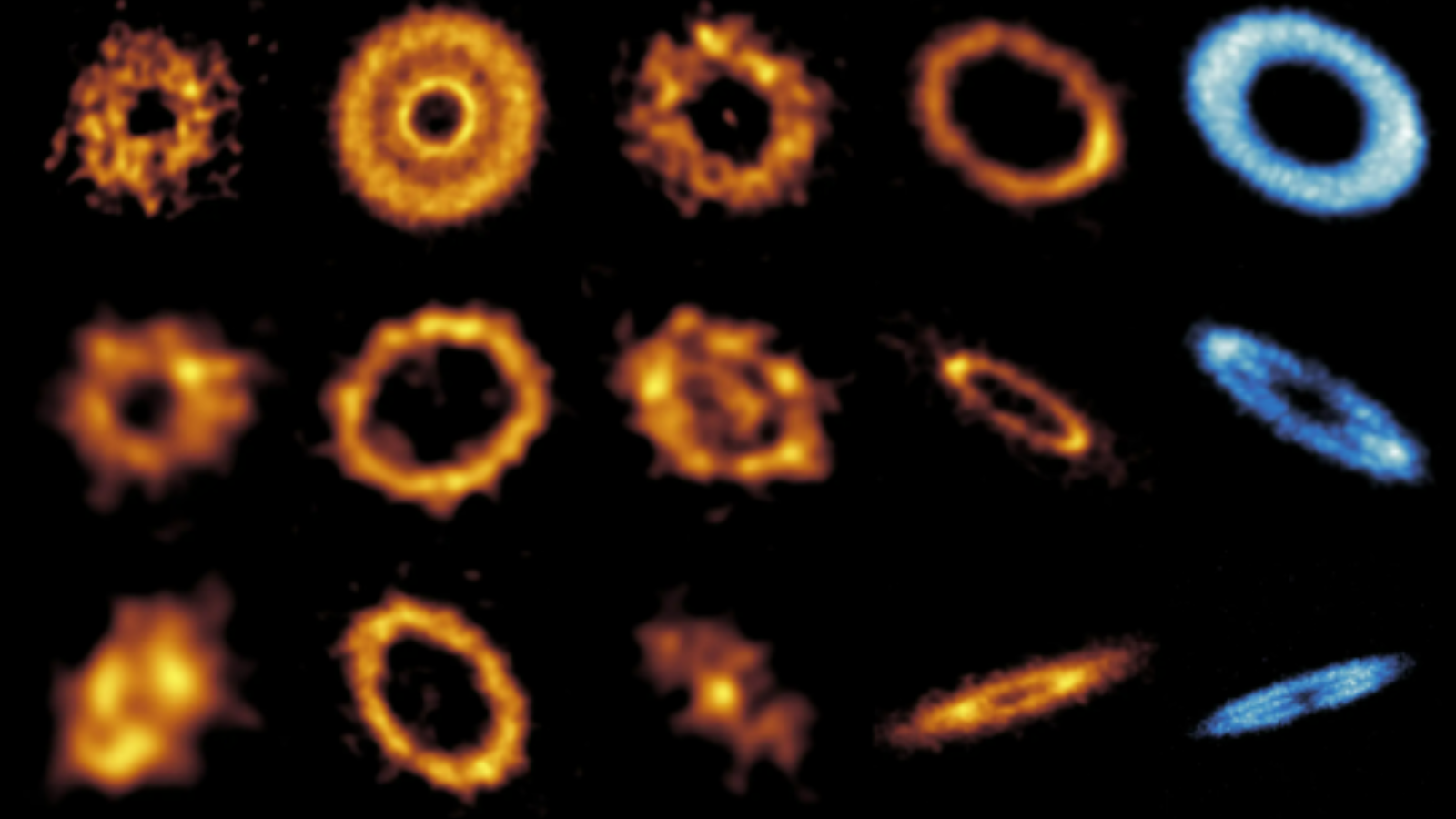Germany's DLR to Fly Experiments on Blue Origin's New Shepard

WASHINGTON — The German Aerospace Center, Germany's space agency, will fly two experiments on a suborbital flight by Blue Origin's New Shepard vehicle later this year as part of an effort to diversify its microgravity research efforts.
Thomas Driebe, head of the physical and material sciences program at the center, known by the German acronym DLR, said in a presentation July 18 at the International Space Station Research and Development Conference here that the center planned to fly the physical sciences experiments under a commercial deal with Blue Origin.
"This is another opportunity for German scientists," he said in a brief discussion about the mission, scheduled for the second half of this year, during his presentation.
In a later interview, Driebe said one of the experiments will test a phenomenon known as photophoresis, the movement of particles suspended in a gas triggered by light. In astrophysics, photophoresis plays a role in the formation of planets in protoplanetary disks. The other experiment, he said, will test granular matter dynamics in microgravity.
DLR flies microgravity experiments on suborbital sounding rockets, but those opportunities are limited: two launches every three years, he said. "There, we really put in experiments which have a strong demand for the six and a half minutes of microgravity time that we have," he said, referring to the time on the sounding rocket flight where the payload is in weightlessness.
Commercial suborbital vehicles offer shorter times in microgravity. Blue Origin, on its website, advertises "approximately three minutes in a high-quality microgravity environment" on each New Shepard flight.
Cost is also a factor. "The sounding rockets are rather cost-intensive," Driebe said. "So this was an opportunity to put small payloads on another platform." DLR purchased the payload space on the New Shepard flight, he said, but he did not disclose the price the center paid. "Since it's one of the first flights, as far as I know there was a special discount."
Breaking space news, the latest updates on rocket launches, skywatching events and more!
New Shepard last flew in October 2016 on a test flight that demonstrated the abort system of the vehicle's crew capsule. The company has not given a specific timetable for future test flights, using newly-constructed capsules and propulsion modules, but has suggested they would resume later this year, including the first flights with people on board.
"We're going to go through the test program, and we'll put humans on it when we're happy," company founder Jeff Bezos said at a press conference in April during the 33rd Space Symposium in Colorado Springs. "I don't think it's going to be 2017 at this point. It could be." He added that it commercial flights, carrying space tourists, could still begin by the end of 2018.
Blue Origin has marketed New Shepard both for suborbital space tourism and research payloads. While the vehicle has yet to carry people, some of the test flights of New Shepard in 2016 included science and technology demonstration payloads as part of a pathfinder program with selected research groups.
New Shepard joins a wide range of other platforms used by DLR for microgravity experiments, from drop towers that provide a few seconds of weightlessness to payloads flown on the ISS. Driebe said he has had discussions with companies like Nanoracks to send additional microgravity payloads to the station.
DLR also previously flew payloads on Foton, a Russian spacecraft that carried experiments into space for a few weeks at a time before returning them to Earth. However, the last Foton mission was in 2014, with no plans by the Russian state space corporation Roscosmos to fly additional missions.
"It's really a pity that we lose this platform for microgravity times of several weeks," he said, noting that it filled a gap between suborbital flights and extended ISS experiments.
Driebe said later that he had discussions several years ago with SpaceX about flying payloads on DragonLab, a version of the company's cargo spacecraft that would carry experiments on orbital flights lasting a few weeks. SpaceX announced plans in 2008 to launch two DragonLab missions in 2010 and 2011, but those missions have yet to fly and are no longer listed in the company's manifest of missions on its website.
"I can easily think of experiments to fill a DragonLab," he said. "It's just a matter of budget."
Originally published on Space News.

Jeff Foust is a Senior Staff Writer at SpaceNews, a space industry news magazine and website, where he writes about space policy, commercial spaceflight and other aerospace industry topics. Jeff has a Ph.D. in planetary sciences from the Massachusetts Institute of Technology and earned a bachelor's degree in geophysics and planetary science from the California Institute of Technology. You can see Jeff's latest projects by following him on Twitter.

